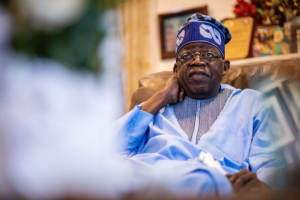
The heated exchange began at an international trade summit in London, where political leaders from across the globe gathered to discuss new economic partnerships and global development.
Among them were Nigeria’s Vice President, Kashim Shettima, and the UK’s Secretary of State for Business and Trade, Kemi Badenoch.
The summit had been running smoothly until a seemingly offhand remark from Badenoch sparked a firestorm. During a panel discussion about Africa’s economic future, Badenoch made a comment that Nigeria, the continent’s largest economy, still faced “chronic corruption and inefficiencies” that held back its potential.
“Nigeria is a nation of great potential,” Badenoch had said, “but it’s being weighed down by endemic corruption and a failure to create the right economic environment. Until these issues are tackled, it’s difficult to see how Nigeria can truly rise to its potential.”
Shettima, who had been seated quietly in the front row, exchanged a glance with Nigeria’s Trade Minister. A former governor with a reputation for being forthright, he was not one to back down in the face of what he perceived as unfair criticism.
He rose from his seat and walked up to the microphone, addressing Badenoch’s comments directly. “With all due respect, Secretary Badenoch,” Shettima began, his voice calm but firm, “such sweeping generalizations about Nigeria are not only inaccurate but also deeply denigrating. It is easy to point fingers from afar, but it is equally important to recognize the strides we have made in governance, economic reforms, and fighting corruption.”
The room went silent, and all eyes were on the Nigerian Vice President. Shettima continued, listing out recent initiatives in Nigeria—successful anti-corruption measures, the ongoing development of infrastructure, and new investments in technology and agriculture. “We have our challenges, yes, but we also have a plan, and we are committed to progress. We are no longer a country defined solely by its struggles, but by its resilience.”
Badenoch, who was caught off guard by the confrontation, took a deep breath before responding. “Vice President Shettima, I certainly didn’t intend to undermine the efforts of the Nigerian government. My comments were meant to highlight areas that need attention, but I understand how they may have been perceived. Nigeria’s challenges are not insurmountable, and I fully acknowledge the positive strides being made.”
The tension in the room seemed to dissipate as the two leaders engaged in a more constructive dialogue about the future of Nigeria’s economy. Shettima emphasized the importance of international cooperation, while Badenoch spoke of the UK’s interest in strengthening ties with Nigeria through trade and investment.
By the end of the summit, what had started as a tense confrontation transformed into a powerful moment of diplomatic exchange. Shettima’s challenge had drawn attention to Nigeria’s progress and ambitions, while Badenoch’s willingness to listen and recalibrate her message helped to foster a more balanced understanding of the complexities facing Africa’s largest economy.
In the world of international politics, it was a reminder that even in moments of disagreement, there could be room for dialogue and growth—both for nations and their leaders.




